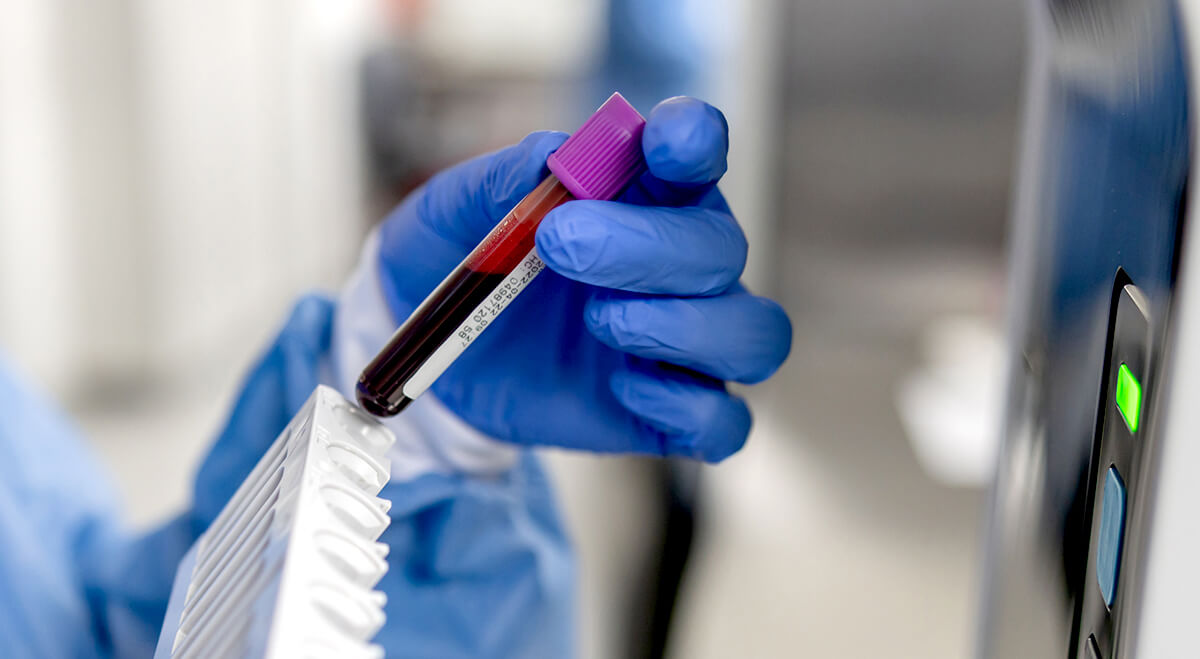You’ve read about it here at StudyFinds often – cancers that typically affect older people are increasing among adults younger than 50 at an alarming rate. These are called early-onset cancers.
The British Medical Journal reported recently that the early onset of 29 cancers increased by 80 percent from 1990 to 2019. Early-onset cancer deaths rose by eight percent. Most scientists believe that lifestyle and environmental conditions contributed to these increases, but how? Scientists don’t know exactly what’s driving the trend, but they’ve discovered a link that could be an answer.
New research conducted at the University of Washington School of Medicine in St. Louis finds that accelerated biological aging may be creating an environment in which early-onset cancers can develop. The study was presented at the American Association for Cancer Research (AACR) Annual Meeting 2024.
Biological age refers to the condition of someone’s body, rather than their chronological age. The University of Washington study found that the bodies of people born in 1965 or later are aging faster than the bodies of people born before 1965. They were 17 percent more likely to have a greater biological age than their chronological age compared to people born between 1950 and 1954.
The study analyzed nine biomarkers in 148,000 people living in the U.K. Many biomarkers come from simple measurements made during a routine doctor visit, like blood pressure or body weight. Other biomarkers are based on laboratory tests of blood, urine, or tissues. Some detect changes in molecules and cells. Biomarkers play a significant role in revealing relationships among environmental exposures, human biology, and disease.
The biomarkers analyzed in this study, all obtained from blood samples, included:
- Albumin — the most common protein in the blood
- Alkaline phosphatase — an enzyme that breaks down proteins
- Creatinine — a normal waste product that indicates how well a person’s kidneys are functioning
- C-reactive protein — indicates general inflammation throughout the body
- Glucose — measures sugar in the blood
- Mean corpuscular volume — the size of red blood cells
- Red cell distribution width — checks for red blood cells with abnormal shapes and sizes of red blood cells
- White blood cell count — measures the condition of the immune system in the blood
- Lymphocyte proportion — measures a specific type of white blood cell called lymphocytes

If a study participant’s biological age was higher than their chronological age, they were determined to have accelerated aging. Researchers discovered that accelerated aging was associated with greater risks of forming early-onset cancers such as:
- Lung cancer — 42% increase
- Gastrointestinal cancer — 22% increase
- Uterine cancer — 36% increase
Researchers also determined that accelerated aging displays a link to a 16-percent increased risk of late-onset (after age 55) gastrointestinal cancer and a 23-percent greater risk of late-onset uterine cancer. The American Cancer Society states that almost half of all cancers have a link to lifestyle factors. Some of these lifestyle factors include obesity, lack of exercise, smoking, alcohol, and stress.
Heart health has a close relationship with overall health. Keeping your heart healthy can slow aging by as much as six years. The American Heart Association’s “Life’s Essential 8” is a user-friendly tool to follow to improve or maintain good heart health.
- Eat better — Develop a healthy eating pattern. Read nutrition labels.
- Be more active — Make your goal the recommended 2.5 hours of moderate exercise or 75 minutes of vigorous activity per week. Kids should get an hour of physical activity per day.
- Quit tobacco use and vaping — Educate yourself about the harmful effects and make a plan to quit. Spare kids and other adults your second-hand smoke.
- Get restful sleep — 7 to 9 hours per night.
- Manage weight — Body Mass Index (BMI) measures weight and fat in relation to height. It can help you know whether you’re at a healthy weight or need to lose weight. Optimal BMI is less than 25, but less than 18.5 is considered underweight.
- Control Cholesterol — Elevated levels of non-HDL, or “bad” cholesterol, lead to heart disease. Your health care professional may measure non-HDL cholesterol as the preferred number to monitor, rather than total cholesterol because it can be measured without fasting before the test.
- Monitor blood glucose — Most of the food we eat is turned into glucose (or blood sugar) that our bodies use for energy. Over time, elevated levels of blood sugar can damage your heart, kidneys, eyes, and nerves.
- Manage blood pressure — Keeping your blood pressure within normal range is vital, especially for the heart, and it affects other organs. Levels less than 120/80 mm Hg are optimal. High blood pressure is defined as 130-139 mm Hg systolic pressure (the top number in a reading) or 80-89 mm Hg diastolic pressure (the bottom number).

